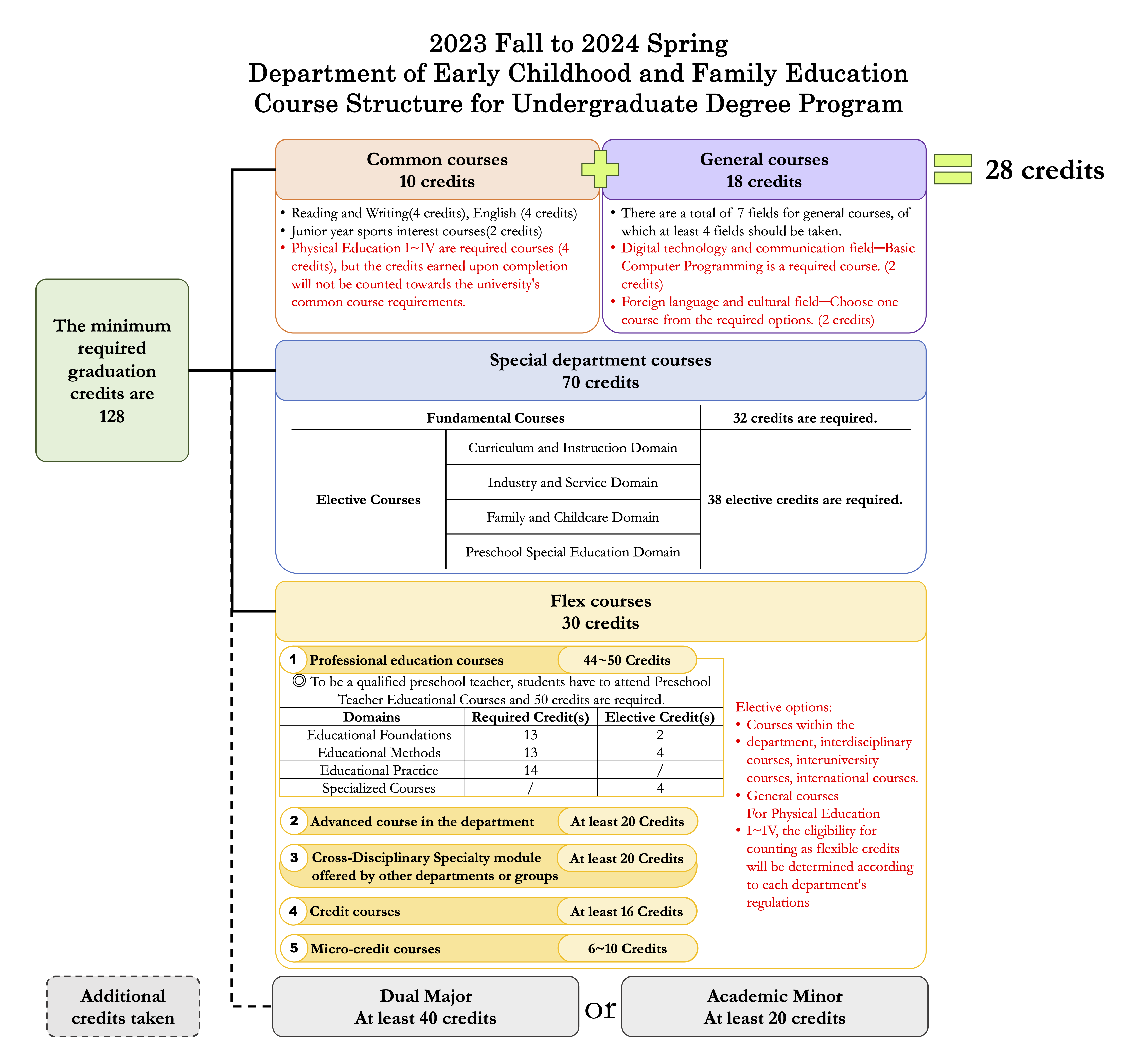Undergraduate Program
Development of the Department:
- With courses in multiple fields of study that combine theory and practice, the department encourages students to explore their potential and develop innovative ideas.
- Through different learning and service activities, the department helps students develop humanistic literacy such as respect and care, communication and sharing, and teamwork.
- The department cultivates students to become individuals who enjoy learning, are willing to actively explore and capable of innovating. The department also helps students integrate and improve their professional knowledge and skills in early childhood education and family education, and apply them in real life.
Philosophy and Vision of the Courses:
- The curriculum of the department includes two tracks: teacher education and non-teacher education domains.
- The courses include four facets: curriculum and teaching, industry and services, family and childcare, and preschool special education. Taking into account how to improve the professional knowledge and capabilities of students and maximize their potential and future development, the courses are designed to allow students to work in the field of early childhood education or other industries that require professional knowledge and skills in early childhood education and family education after graduation.
- Focusing on cultivating students’ research ability and interests, the department encourages students to develop a lifelong passion and learning attitude to become professionals for early childhood education and care services with solid research ability in the field of early childhood education.
Possible career development opportunities for graduates include:
- Teachers of early childhood education institutions.
- Preschool special education/early treatment and care personnel.
- Family education professionals.
- Writers/editors/publishers of children’s literature or educational media for children.
- Art teachers for children (music, arts, drama, rhythms).
- Teachers of physical education for children.
- Research and development of educational materials for children (teaching aids, toys, software design).
- After-school childcare program staff members.
I. Educational Goals
- To cultivate students’ dynamic innovation, enjoyment of communicating and working with others, and abilities to actively explore and solve problems.
- To inspire students' interest and ability to explore early childhood education, family education, and the early childhood education industry.
- To develop early childhood education teachers with specialized knowledge and an attitude of service, and talents with professional skills in the family education program and related industries.
- To foster students with international, interdisciplinary outlooks; multicultural perspectives; and aesthetic literacy.
II. Core Competencies
- Understand, apply, and advance specialized knowledge.
- Innovate, explore, critique, and problem-solve.
- Care for children’s and families’ well-being through a passion for service and reform.
- Have a commitment to professional ethics; focus on collaborative teamwork and leadership management.
- Exhibit international and interdisciplinary vision, multicultural perspective, and aesthetic literacy.




